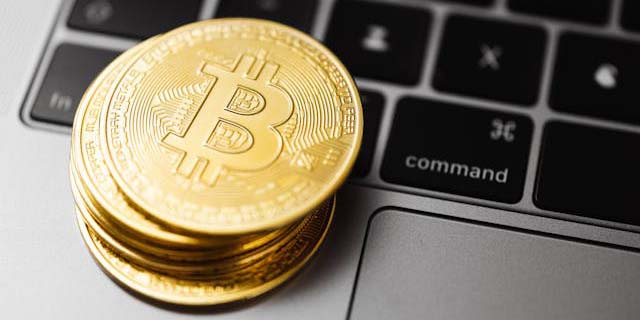
"History of Bitcoin Là Gì?" translates to "What is the history of Bitcoin?" Bitcoin, created in 2009 by an anonymous entity known as Satoshi Nakamoto, emerged as the first decentralized cryptocurrency, introducing a revolutionary concept of peer-to-peer digital currency without the need for intermediaries like banks. The idea was outlined in Nakamoto's white paper titled "Bitcoin: A Peer-to-Peer Electronic Cash System," which proposed a secure and transparent method for conducting transactions using blockchain technology. Over the years, Bitcoin has experienced significant milestones, including its first recorded transaction in 2010, the rise of exchanges, regulatory scrutiny, and its adoption as a legitimate asset class. Today, Bitcoin is recognized not only as a digital currency but also as a store of value, often referred to as "digital gold." **Brief Answer:** The history of Bitcoin began in 2009 with its creation by Satoshi Nakamoto, introducing a decentralized digital currency based on blockchain technology. It has evolved through key milestones, gaining recognition as both a currency and a store of value.
Bitcoin, as a decentralized digital currency, offers several advantages and disadvantages. One of its primary advantages is the potential for high returns on investment due to its volatile nature, attracting both individual and institutional investors. Additionally, Bitcoin transactions can be conducted with relative anonymity and lower fees compared to traditional banking systems, making it appealing for cross-border transactions. However, there are notable disadvantages, including its price volatility, which can lead to significant financial losses, and regulatory uncertainties that may affect its legality and acceptance in various jurisdictions. Furthermore, the environmental impact of Bitcoin mining raises concerns about sustainability. In summary, while Bitcoin presents opportunities for profit and innovation in finance, it also carries risks and challenges that potential users and investors must carefully consider.


"Challenges of Bitcoin Là Gì?" refers to the various obstacles and issues that Bitcoin faces as a decentralized digital currency. These challenges include regulatory scrutiny from governments, which can lead to restrictions or bans; scalability problems, where the network struggles to handle a high volume of transactions efficiently; security concerns, particularly regarding hacking and fraud; environmental impact due to the energy-intensive mining process; and market volatility, which can deter mainstream adoption. Additionally, there are usability issues for non-technical users and competition from other cryptocurrencies and financial technologies. In brief, the challenges of Bitcoin encompass regulatory hurdles, scalability issues, security risks, environmental concerns, market volatility, and usability barriers, all of which affect its adoption and stability as a currency.


"Find talent or help about Bitcoin Là Gì?" translates to "What is Bitcoin?" in English. Bitcoin is a decentralized digital currency that was created in 2009 by an anonymous entity known as Satoshi Nakamoto. It operates on a technology called blockchain, which is a distributed ledger that records all transactions across a network of computers. Unlike traditional currencies issued by governments, Bitcoin is not controlled by any central authority, making it immune to government interference or manipulation. Its appeal lies in its potential for high returns, the ability to transfer value globally with low fees, and its role as a hedge against inflation. As interest in cryptocurrencies grows, individuals and businesses seek talent and expertise in this field to navigate its complexities and leverage its opportunities. **Brief Answer:** Bitcoin is a decentralized digital currency created in 2009, operating on blockchain technology, allowing peer-to-peer transactions without a central authority.
Easiio stands at the forefront of technological innovation, offering a comprehensive suite of software development services tailored to meet the demands of today's digital landscape. Our expertise spans across advanced domains such as Machine Learning, Neural Networks, Blockchain, Cryptocurrency, Large Language Model (LLM) applications, and sophisticated algorithms. By leveraging these cutting-edge technologies, Easiio crafts bespoke solutions that drive business success and efficiency. To explore our offerings or to initiate a service request, we invite you to visit our software development page.




TEL:866-460-7666
EMAIL:contact@easiio.com
ADD.:11501 Dublin Blvd. Suite 200, Dublin, CA, 94568